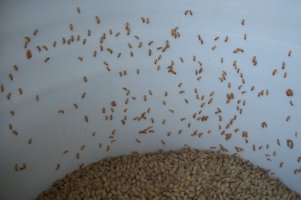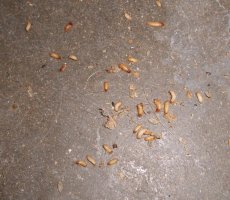The ingredients (crushed grains, hops, dry yeast), stored at typical basement temperatures (55F winter, 65F summer?), for two years, are reasonably beyond their "best by" dates. Suppliers are often conservative with those "best by" dates.
The question, for you, is where do you "cut your losses" on these old kits?
If you have spare time, brewing the kits would be one use of the time but there are other uses of that time.
If you decide to brew it, and then package it, and find it tastes "good enough", enjoy.
Otherwise, life it too short to drink bad beer.






















































![Craft A Brew - Safale BE-256 Yeast - Fermentis - Belgian Ale Dry Yeast - For Belgian & Strong Ales - Ingredients for Home Brewing - Beer Making Supplies - [3 Pack]](https://m.media-amazon.com/images/I/51bcKEwQmWL._SL500_.jpg)










